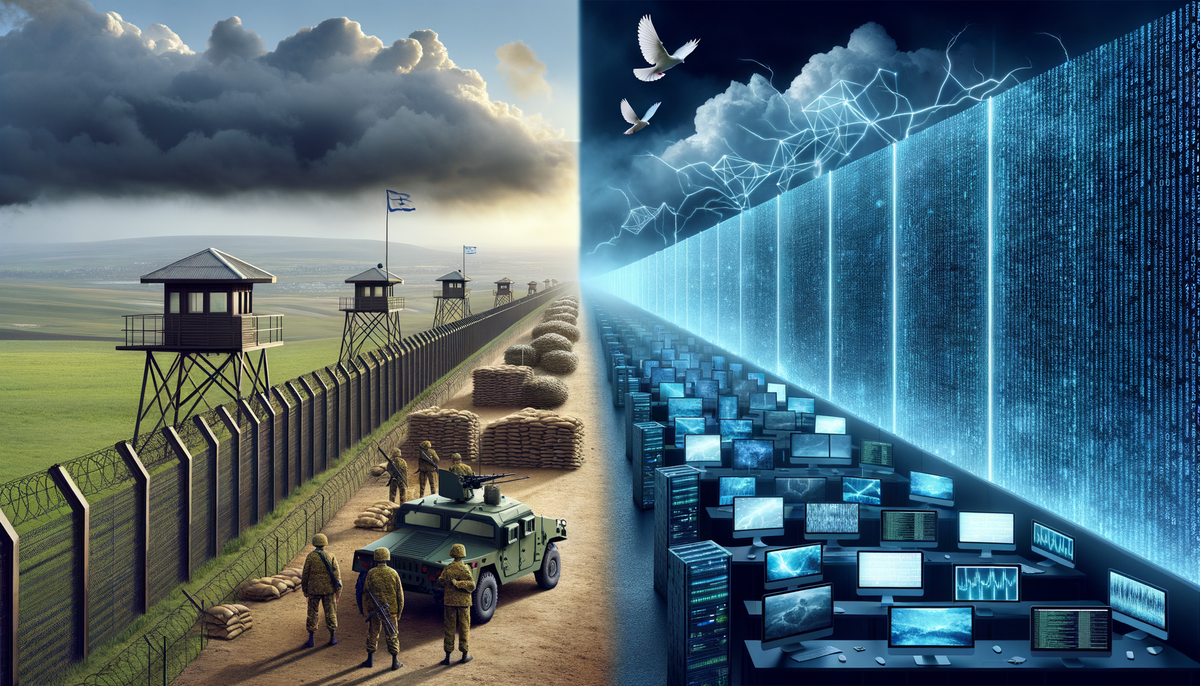DMZ: A New Era in Geopolitical and Cyber Security
Explore the critical role of DMZ in military and cybersecurity, and learn how it can protect against threats while promoting peace.

DMZ: A New Era in Geopolitical and Cyber Security
The acronym "DMZ" may have different meanings depending on the context, but it consistently represents a buffer or protective zone. In today's global landscape, understanding the intricacies of the DMZ in both military and cyber security domains is essential for professionals. In this post, we explore the significance of the DMZ, its implications in various fields, and how these concepts interrelate to create a more secure world.
Understanding the DMZ
In military terms, the DMZ (demilitarized zone) refers to an area established through treaties or agreements where military forces and activities are prohibited. The Korean Demilitarized Zone is the most famous example, serving as a buffer between North and South Korea. Similar arrangements exist elsewhere, such as the buffer zone between Iraq and Kuwait and Cyprus's Green Line.
DMZ in the Military Context
In military contexts, a DMZ serves primarily to prevent military conflict and reduce tensions between hostile states. These zones often become de facto international boundaries and can have unintended ecological benefits by becoming wildlife preserves due to the absence of human disturbances. The Korean DMZ is a prime example of an unintentional nature reserve.
DMZ in Computing and Network Security
In the realm of computing, a DMZ (sometimes called a screened subnet) is a critical component in network security architecture. It functions as a separate subnetwork that acts as a layer of protection between an organization’s internal local area network (LAN) and untrusted external networks, such as the internet. Such setups are crucial to preventing unauthorized access and maintaining data integrity.
Common services placed in the computer DMZ include web, email, DNS, FTP, and proxy servers, all of which must be accessible to the outside world but isolated from the more secure internal network.
Security and Practical Applications
The primary advantage of a DMZ in computing is its security function. By placing external-facing services in a DMZ, organizations can significantly reduce the risk of a security breach affecting their main internal networks. A compromised server in the DMZ won't necessarily lead to compromised internal systems as it is isolated by the network’s firewall restrictions.
For cybersecurity professionals, understanding and correctly implementing a DMZ is essential. They should focus on hardening servers within the DMZ, regularly updating them to mitigate threats, and using robust security protocols to handle potential breaches.
Comparative Insights and Strategic Implementation
Whether in geopolitics or cybersecurity, the DMZ serves as a crucial barrier against unregulated access — mitigating risks and promoting peace in different contexts. The parallels between its military and computing applications highlight the underlying principle of protection through controlled engagement.
For companies dealing with large amounts of sensitive data or those operating in high-risk geographical regions, consulting experts to design an effective DMZ could be the key to safeguarding their assets.
Conclusion and Call to Action
The dual application of DMZ concepts in both military and cyber applications demonstrates its pivotal role in modern security strategies. As threats evolve, so must the systems designed to counter them. Companies specializing in cybersecurity and geopolitical risk management can benefit significantly from staying updated on DMZ best practices.
If you are considering enhancing your network security or understanding the geopolitical implications of demilitarized zones, engaging with experienced consultants who specialize in DMZ applications can be an invaluable step. Explore how our expertise in designing robust DMZ infrastructures can support your organization's specific needs. Contact us today for a consultation and take the first step towards a more secure future.




